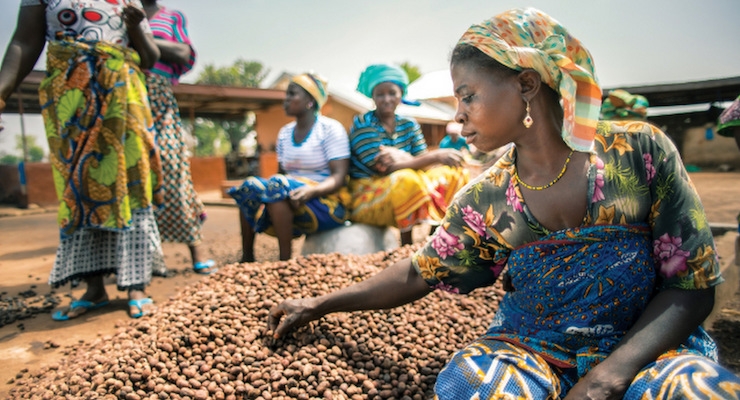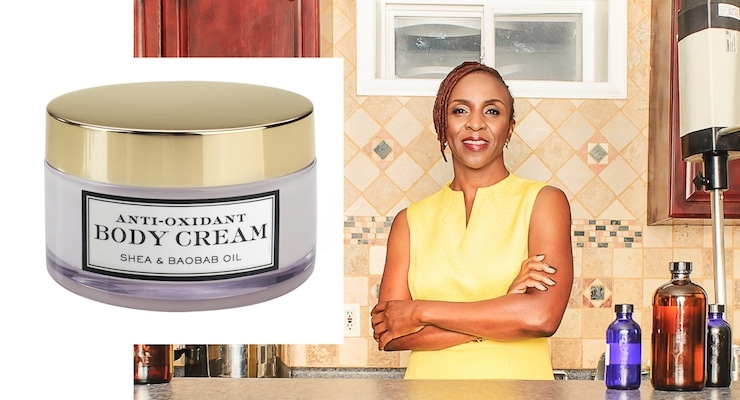Funlayo Alabi, Co-Founder, Shea Radiance06.28.18
The United Nations World Commission on Environment and Development describes sustainability as -- "the ability to meet the needs of the present without compromising the ability of future generations to meet their own needs."
Sustainability is not an abstract concept. It can be seen in the choices a company makes in the course of its operations.
Sustainability consists of the decisions a business makes about product packaging and the environmental impacts. It includes how supply chains are managed and the ecosystems from which raw materials are extracted.
A company’s view on sustainability influences the value it places on the well-being of its employees and customers. Sustainability is what businesses employ to manage their responsibility to People, Planet and Profit.
'Do Well By Doing Good'
John Mackey, CEO of Whole Foods Market, describes the concept of Conscious Capitalism in a book he co-authored with Raj Sisodia.
This concept suggests that businesses that exist to bring about positive impacts for the customers, employees, suppliers and the environment will ultimately do well financially and to the benefit of their investors.
The premise of doing well by doing good can be seen across industries in companies like Whole Foods, Southwest Airlines and Costco, just to name a few.
Consumers Believe They Can Make a Difference
Research from Ogilvy Public Relations Worldwide and Georgetown University’s Center for Social Impact Communication shows that American women are strong believers in the power of people making a difference by supporting causes.
Update: See Ogilvy's new paper: Making Brands Matter for the Generations to Come
The study also showed that American women are more likely than men to believe that supporting causes creates a sense of purpose and meaning in life, makes them feel good about themselves and makes them feel like part of a community.
More than four in 10 Americans are actively involved with cause-oriented initiatives.
Women are the primary consumers of beauty products and millennial women ages 18 to 34 are the heaviest buyers of beauty products in the $13 billion cosmetics industry.
Millennials are passionate about social causes that benefit the greater good. They care about how the brands they purchase from do business and the impacts they have on communities and the environment as a whole.
Kahina Giving Beauty Gives Back
Brands like Kahina Giving Beauty are grounded on sustainability. Their product offering is based on the benefits of Moroccan Argan Oil.
Kahina donates 1% of its revenue to the Berber women of Morocco, who extract the Argan Oil. They also work in collaboration with the High Atlas Foundation, to plant 12,000 trees in community-run nurseries, in an effort to elevate rural Moroccans beyond subsistence-level farming.
The brand's sustainability efforts go as far as donating 100 sheep to women in the Anti Atlas Mountains of Morocco to provide wool for weaving. They also constructed a girl’s bathroom to serve a public primary school outside of Marrakech. Girls were not attending school due to the lack of privacy and hygiene—as a result of the new bathroom, the school is seeing attendance rise among girls.
Burt's Bees Helps Bees
For Burt’s Bees, a natural skincare products company, sustainability is built into the company DNA, where beeswax and honey are key ingredients in their product offering.
Two years ago, they launched an awareness campaign to bring attention to the environmental issues affecting bees. They were able to rally their customer base to help fund plantings of bee-attracting wildflower patches near farmland in the U.S. The company's goal was to plant one billion wildflowers.
Burt’s Bees helped educate the public on the why behind bees and how crucial they are to our world -- human and environmental health, impacts on biodiversity, food security, nutrition and sustainable land use.
Shea Moisture Helps Support Shea Producers in Ghana
Shea Moisture a subsidiary of Sundial Brands, recently acquired by Unilever, invests heavily in supporting community development across their supply chain and in the U.S.
Their work has made it possible for Shea producers in Ghana to access fresh piped water, healthcare enrollment and higher school attendance rates.
Kjaer Weis, an organic beauty brand from Denmark is creating sustainable impact with a highly innovative refill system for their luxury beauty products which include color cosmetics and skincare products.
According to Kjaer, their intelligent refill system eliminates the need to waste money or create waste on packaging that’s made to be discarded.
The architecturally bold design of KW products is meant to be kept –built out of beautiful, quality metal that can be refilled again and again and again.
Beauty Consumers Care
Women report that they care about issues of sustainability especially when it concerns the environment, women and children. They care about where their products come from and how they are sourced.
Women are the primary consumers of beauty products, so sustainability and beauty should be treated as complimentary.
Photo: Shea Butter Community Commerce Project
ABOUT THE AUTHOR
Funlayo Alabi is the co-founder of Shea Radiance, a natural beauty brand dedicated to transforming hair, skin, thinking … and lives into something more beautiful than what it was before.
Funlayo is a global business leader who speaks domestically and internationally on matters of international business, market and economic access for African women, Africa’s agricultural sector and Shea butter.
Funlayo and Shea Radiance were selected to be honored in the 2017 Goldman Sachs 10,000 Small Businesses program offering education, business support services and access to working capital.
Read MoreExpert's Opinion: Sustainable Packaging in the Beauty Industry by Dr. Sandeep Kulkarni
Expert's Opinion: Australia: A Strong Commitment to Sustainable Beauty by Jemma Shin
Expert's Opinion: Evolving Perspectives of Beauty: GenZ, Millennials and Boomers by Elle Morris






























